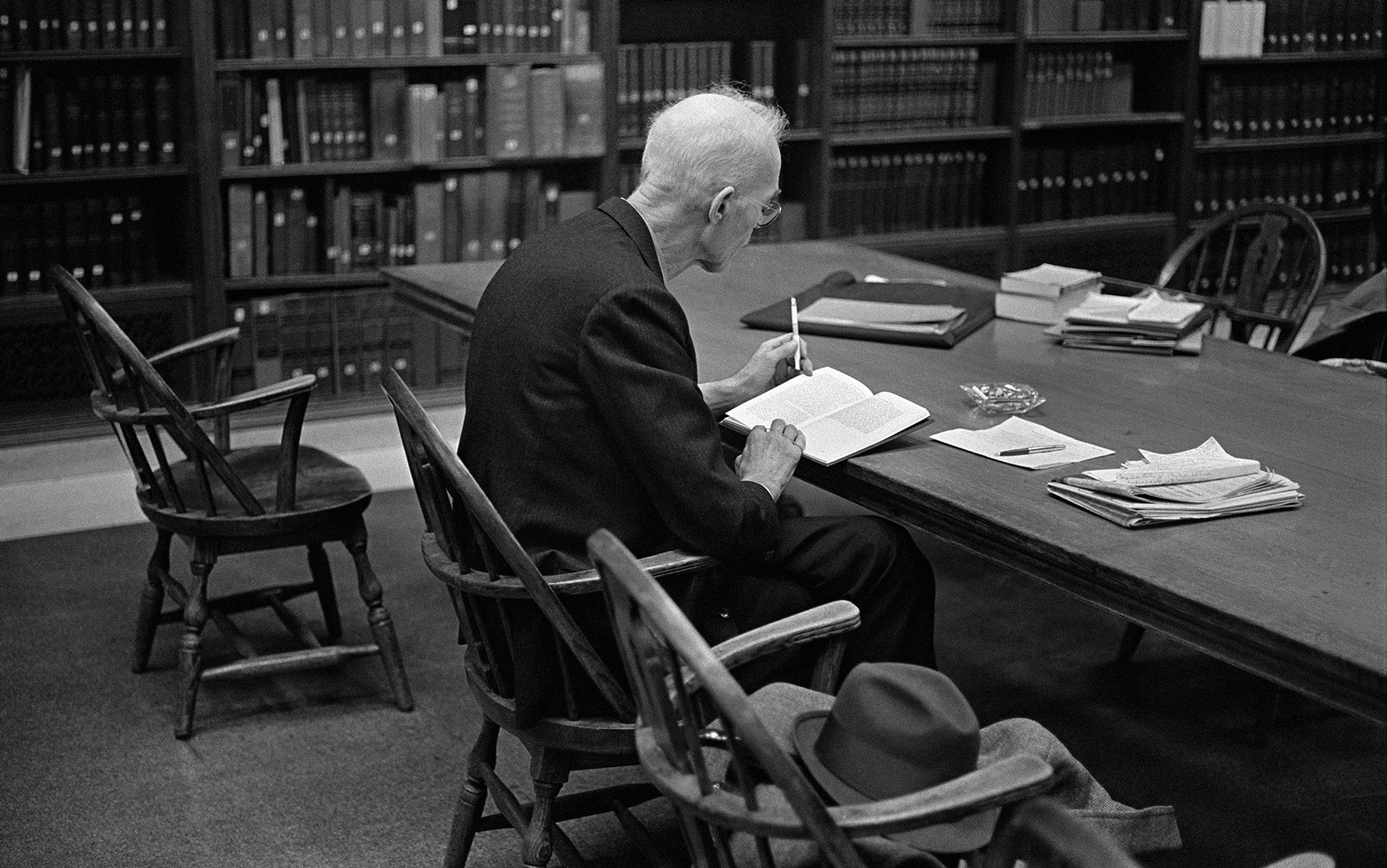In the Western world, only since the mid-18th century has it been possible to discuss ethical questions publicly without referring to Christianity. Modern thinking about morality, which assumes that gods do not exist, or at least do not intervene, is in its infancy. But the ancient Greeks and Romans elaborated robust philosophical schools of ethical thought for more than a millennium, from the first professed agnostics such as Protagoras (fifth century BCE) to the last pagan thinkers. The Platonists’ Academy at Athens was not finally closed down until 529 CE, by the Emperor Justinian.
That longstanding tradition of moral philosophy is an invaluable legacy of ancient Mediterranean civilisation. It has prompted several contemporary secular thinkers, faced with the moral vacuum left by the decline of Christianity since the late 1960s, to revive ancient schools of thought. Stoicism, founded in Athens by the Cypriot Zeno in about 300 BCE, has advocates. Self-styled Stoic organisations on both sides of the Atlantic offer courses, publish books and blogposts, and even run an annual Stoic Week. Some Stoic principles underlay Dale Carnegie’s self-help classic How to Stop Worrying and Start Living (1948). He recommended Marcus Aurelius’ Meditations to its readers. But authentic ancient Stoicism was pessimistic and grim. It denounced pleasure. It required the suppression of emotions and physical appetites. It recommended the resigned acceptance of misfortune, rather than active engagement with the fine-grained business of everyday problem-solving. It left little room for hope, human agency or constructive repudiation of suffering.
Less familiar is the recipe for happiness (eudaimonia) advocated by Aristotle, yet it has much to be said for it. Outside of philosophy departments, where neo-Aristotelian thinkers such as Philippa Foot and Rosalind Hursthouse have championed his virtue ethics as an alternative to utilitarianism and Kantian approaches, it is not as well known as it should be. At his Lyceum in Athens, Aristotle developed a model for the maximisation of happiness that could be implemented by individuals and whole societies, and is still relevant today. It became known as ‘peripatetic philosophy’ because Aristotle conducted philosophical debates while strolling in company with his interlocutors.
The fundamental tenet of peripatetic philosophy is this: the goal of life is to maximise happiness by living virtuously, fulfilling your own potential as a human, and engaging with others – family, friends and fellow citizens – in mutually beneficial activities. Humans are animals, and therefore pleasure in responsible fulfilment of physical needs (eating, sex) is a guide to living well. But since humans are advanced animals, naturally inclining to live together in settled communities (poleis), we are ‘political animals’ (zoa politika). Humans must take responsibility for their own happiness since ‘god’ is a remote entity, the ‘unmoved mover’ who might maintain the universe’s motion but has neither any interest in human welfare, nor any providential function in rewarding virtue or punishing immorality. Yet purposively imagining a better, happier life is feasible since humans have inborn abilities that allow them to promote individual and collective flourishing. These include the inclinations to ask questions about the world, to deliberate about action, and to activate conscious recollection.
Aristotle’s optimistic, practical recipe for happiness is ripe for rediscovery. It offers to the human race facing third-millennial challenges a unique combination of secular, virtue-based morality and empirical science, neither of which seeks answers in any ideal or metaphysical system beyond what humans can perceive by their senses.
But what did Aristotle mean by ‘happiness’ or eudaimonia? He did not believe it could be achieved by the accumulation of good things in life – including material goods, wealth, status or public recognition – but was an internal, private state of mind. Yet neither did he believe it was a continuous sequence of blissful moods, because this could be enjoyed by someone who spent all day sunbathing or feasting. For Aristotle, eudaimonia required the fulfilment of human potentialities that permanent sunbathing or feasting could not achieve. Nor did he believe that happiness is defined by the total proportion of our time spent experiencing pleasure, as did Socrates’ student Aristippus of Cyrene.
Aristippus evolved an ethical system named ‘hedonism’ (the ancient Greek for pleasure is hedone), arguing that we should aim to maximise physical and sensory enjoyment. The 18th-century utilitarian Jeremy Bentham revived hedonism in proposing that the correct basis for moral decisions and legislation was whatever would achieve the greatest happiness for the greatest number. In his manifesto An Introduction to the Principles of Morals and Legislation (1789), Bentham actually laid out an algorithm for quantitative hedonism, to measure the total pleasure quotient produced by any given action. The algorithm is often called the ‘hedonic calculus’. Bentham spelled out the variables: how intense is the pleasure? How long will it last? Is it an inevitable or only possible result of the action I am considering? How soon will it happen? Will it be productive and give rise to further pleasure? Will it guarantee no painful consequences? How many people will experience it?
Bentham’s disciple, John Stuart Mill, pointed out that such ‘quantitative hedonism’ did not distinguish human happiness from the happiness of pigs, which could be provided with incessant physical pleasures. So Mill introduced the idea that there were different levels and types of pleasure. Bodily pleasures that we share with animals, such as the pleasure we gain from eating or sex, are ‘lower’ pleasures. Mental pleasures, such as those we derive from the arts, intellectual debate or good behaviour, are ‘higher’ and more valuable. This version of hedonist philosophical theory is usually called prudential hedonism or qualitative hedonism.
Train yourself to be the best possible version of yourself until you do the right thing habitually, on autopilot
There are few philosophers advocating hedonist theories today, but in the public understanding, when ‘happiness’ is not defined as the possession of a set of ‘external’ or ‘objective’ good things such as money and career success, it describes a subjective hedonistic experience – a transient state of elation. The problem with both such views, for Aristotle, is that they neglect the importance of fulfilling one’s potential. He cites approvingly the primordial Greek maxim that nobody can be called happy until he is dead: nobody wants to end up believing on his deathbed that he didn’t fulfil his potential. In her book The Top Five Regrets of the Dying (2011), the palliative nurse Bronnie Ware describes exactly the hazards that Aristotle advises us to avoid. Dying people say: ‘I wish I’d had the courage to live a life true to myself, not the life others expected of me.’ John F Kennedy summed up Aristotelian happiness thus: ‘the exercise of vital powers along lines of excellence in a life affording them scope’.
For Aristotle insisted that happiness is constituted by something greater from and different to an accumulation of agreeable experiences. To be happy, we need to sustain constructive activities that we believe are goal-directed. This requires conscious analysis of our goals and conduct, and practising ‘virtue ethics’, by ‘living well’. It requires being nurtured effectively to develop your intellectual and physical capacities, and identify your potential (Aristotle had strong views on education), and also training yourself to be the best possible version of yourself until you do the right thing habitually, on autopilot. If you deliberately respond in a friendly way to everyone you encounter, you will begin to do so unconsciously, making yourself and others happier.
Historically, of course, many philosophers, such as Egoists, have questioned whether virtue is inherently desirable. But, since the mid-20th century, others rehabilitated virtue ethics and focused intensively on Aristotle’s ideas: unfortunately, this academic interest has yet to achieve any real public presence in broader culture in the way that Stoicism has.
Some thinkers today distinguish between two sub-categories of virtue: between virtues such as courage, honesty and integrity, which affect your own and your community’s happiness; and ‘benevolence virtues’ such as kindness and compassion, which benefit others but are less obviously likely to gratify the agent. But Aristotle, for whom self-liking is necessary to virtue, argues that virtues do have intrinsic benefits, a view he shares with Socrates, the Stoics and the Victorian philosopher Thomas Hill Green. For part of his life, Aristotle lived in the Macedonian court tyrannised by the decadent and ruthless Philip II, whose lieutenants and concubines resorted to plots, extortion and murder to further their self-advantage. He knew what an immoral person looks like, and that such people were often subjectively miserable, despite the outward trappings of wealth and success. In the Nicomachean Ethics, he wrote (all translations my own):
Nobody would call a man ideally happy if he has not got a particle of courage nor of temperance nor of decency nor of good sense, but is afraid of the flies that flutter by him, cannot refrain from any of the most outrageous actions in order to gratify a desire to eat or to drink, and ruins his dearest friends for the sake of a penny …
Aristotle says that if happiness is not god-sent, ‘then it comes as the result of a goodness, along with a learning process, and effort’. Every human being can practise a way of life that will make him happier. Aristotle is not offering a magic wand to erase all threats to happiness. There are indeed some qualifications to the universal capacity for pursuing happiness. He accepts that there are certain kinds of advantage that you either have or you don’t. If you have the bad luck to have been born very low down the socio-economic ladder, or have no children or other family or loved ones, or are extremely ugly, your circumstances, which you can’t avoid, as he puts it, ‘taint’ delight. It is harder to achieve happiness. But not impossible. You do not need material possessions or physical strength or beauty to start exercising your mind in company with Aristotle, since the way of life he advocates concerns a moral and psychological excellence rather than one that lies in material possessions or bodily splendour. There are, he acknowledges, even more difficult obstacles: having children or friends who are completely depraved is one such obstacle. Another – which Aristotle saves until last and elsewhere implies is the most difficult problem any human can ever face – is the loss of fine friends in whom you have invested effort, or especially the loss of children, through death.
Yet, potentially, even people poorly endowed by nature or who have experienced terrible bereavements can live a good life. It is possible to undergo even apparently unendurable disasters and still live well: ‘even in adversity goodness shines through, when someone endures repeated and severe misfortune with patience; this is not owing to insensibility but from generosity and greatness of soul.’ In this sense, Aristotle’s is a deeply optimistic moral system. And it has practical relevance to ‘everyone’, implied by Aristotle’s inclusive use of the first personal plural: ‘This sort of philosophy is different from most other types of philosophy, since we are not asking what goodness is for the sake of knowing what it is, but with the aim of becoming good, without which our enquiry would be useless.’ In fact, the only way to be a good person is to do good things and treat people with fairness recurrently.
Aristotle insists that individuals who want to treat others fairly need to love themselves
Friendships are important to the Aristotelian, and adopting virtue ethics need not disrupt your life. An Aristotelian goal is moral self-sufficiency so that you are invulnerable to psychological manipulation, but he recognises that even the most self-sufficient person’s life is enhanced by having friends, and writes brilliantly on different types of relationship, from marriage or its equivalents to reciprocal cooperation between co-workers and fellow citizens. We might be able to cope alone, but why would we ever choose isolation? Moreover, you need no ‘natural talent’ at virtue, indeed Aristotle says that we are not born either good or bad. Nor is it ever too late: you can decide to retrain yourself morally at any point in your life. Most appealing of all, Aristotle insists that individuals who want to treat others fairly need to love themselves. There is no room for self-hatred, self-flagellation or self-deprivation in his humane system. Aristotle saw long before Sigmund Freud that our biological instincts are natural rather than morally despicable. This makes his ethics compatible with modern psychoanalysis.
An innovative Aristotelian idea is that supposedly reprehensible emotions – even anger and vengefulness – are indispensable to a healthy psyche. In this respect, Aristotle’s philosophy contrasts with the Stoic view that, for example, anger is irrational, and a form of temporary madness that should be eliminated. It’s just that such emotions need to be present in the right amount, the ‘middle’ or ‘mean’. Sexual desire, since humans are animals, is excellent in proportion. Either excessive or insufficient sexual appetite is conducive to unhappiness. Anger is also essential to a flourishing personality. An apathetic individual who never gets angry will not stand up for herself or her dependents when appropriate, and can’t achieve happiness. Yet anger in excess or with the wrong people is a vice.
Aristotle’s ethics are inherently flexible. There are no strict doctrines. Intention is always a crucial gauge of right behaviour: he writes penetratingly about the problems that arise when intended altruistic ends require immoral means. But every ethical situation is different. One person might jump on a train without a ticket because he is rushing to see a child who is in hospital; another might methodically dodge fares when she’s commuting to a well-paid job. Aristotle thought that general principles are important, but without taking into account the specific circumstances, especially intention, general principles can mislead. This is why he distrusted fixed penalties. He believed that the principle of equity needed to be integral to the judiciary, which is why some Aristotelians call themselves ‘moral particularists’. Each dilemma requires detailed engagement with the nuts and bolts of its particulars. When it comes to ethics, the devil really can be in the detail.
Politically speaking, a basic education in Aristotelianism could benefit humanity as a whole. Aristotle is positive about democracy, with which he finds fewer faults than other constitutions. Unlike his elitist tutor Plato, who was skeptical about the intelligence of the lower classes, Aristotle believed that the greatest experts on any given topic (eg zoology, of which he is the acknowledged founding father) are likely to be those who have accumulated experience of that topic (eg farmers, bird-catchers, shepherds and fishermen), however low their social status; scholarship must be informed by what they say. The trust that Aristotle felt in humanity’s general good sense enabled him to conceive a prototype of the ‘smart mob’ – a group that, rather than behaving in the loutish manner often associated with crowds, draws on universally distributed intelligence to behave with maximum efficiency. The idea, introduced by Howard Rheingold in Smart Mobs (2003), was anticipated in Aristotle’s Politics: where many people come together to deliberate, and become ‘a single person with many feet and many hands and many senses, so also it becomes one personality as regards the moral and intellectual faculties’.
Aristotle was the first philosopher to make explicit the distinction between doing wrong by omission and by commission. Not doing something when it is right to do it can have just as bad effects as a misdemeanour. This vital ethical principle has ramifications for the way in which we assess public figures. We do ask whether politicians have ever slipped up. But how often do we ask what they have not done with their power and influence to improve societal wellbeing? We do not ask enough what politicians, business leaders, presidents of universities and funding councils have failed to do, the initiatives that they have never launched, thus abnegating the duties of leadership. Aristotle was also clear that rich people who do not use a significant proportion of their wealth to help others are unhappy (because they are not acting according to the virtuous mean between fiscal irresponsibility and financial meanness). But they are also guilty of injustice by omission.
Aristotle is a utopian. He imagines the possibility that everyone will one day be able to realise his potential and make full use of all his faculties (the distinctive ‘Aristotelian principle’ according to the political philosopher John Rawls). Aristotle envisages a futuristic world in which technological advances would render human labour unnecessary. He remembers the mythical craftsmen Daedalus and Hephaestus, who constructed robots that worked to order: ‘for if every tool could perform its own work when ordered, or by seeing what to do in advance, like the statues of Daedalus in the story, or the automatic tripods of Hephaestus … if shuttles could weave like this, and plectrums strum harps of their own accord, master-craftsmen would have no need of assistants and masters no need of slaves’. It is almost as if he anticipated modern developments in artificial intelligence.
Aristotle’s political theory is flexible. You can be a capitalist or socialist, a businesswoman or a charity worker, vote for (almost) any political party, and still be a consistent Aristotelian. However, Aristotelian capitalists need to find indigence among their fellow citizens intolerable. Aristotle knew that humans come into conflict when commodities are scarce: ‘poverty is the parent of revolution and crime’. In his insistence on grounding political theory in humanity’s basic needs, Aristotle conceived the most advanced economic ideas ever to have appeared in his time, which was why Karl Marx admired him. Aristotle agrees with the recommendation in Plato’s Laws that gross inequality in assets owned by citizens produces divisive litigation and revolting obsequiousness towards the super-rich. Yet Aristotelian socialists need to acknowledge that extending compulsory public ownership to domestic accommodation does not work. People look after things because they enjoy the sense of private ownership, and because the things have value for them; both these qualities are diluted if shared with others. Aristotle thinks that ‘everybody loves a thing more if it has cost him trouble’.
Scientists and classicists agree: Aristotle would be an environmental campaigner today
A climate-change denier could find no encouragement in Aristotle. As a natural scientist who believed in meticulous research based on repeated acts of empirical observation and rigorous examination of hypotheses, he would be alarmed at the current evidence of human-caused environmental damage. The first reference to the extinction of a species by human activity (over-fishing) occurs in Aristotle’s The History of Animals. By seeing humans as animals, he effected a transformation in the ethical relationship between us and our material environment that has unlimited significance. His commitment to living planned lives in a deliberated way, taking long-term and total responsibility for our physical survival as well as our mental happiness, would, scientists and classicists agree, make him an environmental campaigner today. Only humans have moral agency, and therefore, as co-inhabitants of planet Earth with an astounding number of plants and animals, have the unique responsibility for conservation. But humans also have the capacity, because of their unique mental endowment, to cause terrible damage: as Aristotle said, drawing a chilling distinction, a bad man can do 10,000 times more harm than an animal.
The applicability of Aristotle’s holistic ethical and scientific outlook to our 21st-century problems such as theocracy and pollution prompts the question of why is there so little public awareness of his ideas. One is certainly his much-cited prejudices against women and slaves. He was a well-to-do male householder, and in his Politics he endorses slavery in the case of Greeks enslaving non-Greeks, and pronounces that women are incapable of reasoned deliberation. Yet he would have entertained reasoned arguments to the contrary, if backed up by empirical evidence. In every field of knowledge, he argued that all beliefs must be perpetually open to adjustment: ‘medicine has been improved by being altered from the ancestral system, and gymnastic training, and in general all the arts and faculties’. The laws the Greeks used to live by ‘were too simple and uncivilised’: he cites as examples the obsolete practices of purchasing wives and bearing of arms by citizens. He insists that law-codes need revision, ‘because it is impossible that the structure of the state can have been framed correctly for all time in relation to all its details’.
Yet the most important reason why Aristotle is so unfamiliar is that his surviving works are advanced treatises, written in specialist academic language for his colleagues and students. In fact, he did write several famous works for the public, in accessible, flowing prose that encouraged many thousands of ancient Greeks and Romans, over 10 centuries, to become practising virtue ethicists. They included peasant farmers and cobblers as well as kings and statesmen. This is because, as Themistius, one of the greatest ancient commentators on Aristotle, insisted, he was simply ‘more useful to the mass of people’ than other thinkers. The same still holds. The philosopher Robert J Anderson wrote in 1986: ‘There is no ancient thinker who can speak more directly to the concerns and anxieties of contemporary life than can Aristotle. Nor is it clear that any modern thinker offers as much for persons living in this time of uncertainty.’
One of the reasons why Stoicism is enjoying a revival today is that it gives concrete answers to moral questions. Aristotle’s ethical writings, however, contain few explicit instructions about how to act. Aristotelians need to take full responsibility in deciding what is the right way to behave and in repeatedly exerting their own judgment. The chief benefit that Aristotle can bestow on us today, which makes him so useful and practically applicable, is his alternative conception of ‘happiness’. It cannot be acquired by pleasurable experiences but only by identifying and realising our own potential, moral and creative, in our specific environments, with our particular family, friends and colleagues, and helping others to do so. We need to review both what we choose to do and what we avoid doing, because wrongs caused by omission can be just as destructive as those we commit. This involves embracing emotional impulses but also ensuring that we are using them as guides to what is good rather than letting them dictate our actions. And we need to do these thing continuously, since cultivating virtue, and the happiness that comes with this approach to life, can never be anything less than a lifelong goal.






